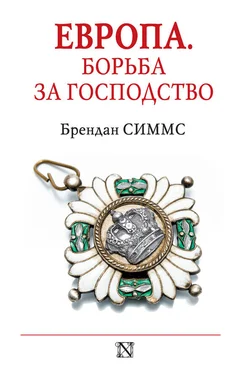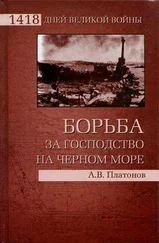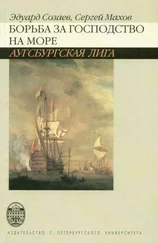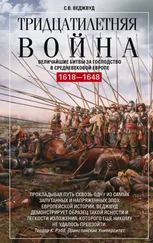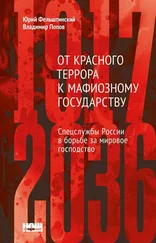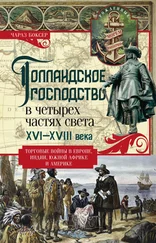Medlicott and Coveney (eds.), Bismarck and Europe, p. 99.
Geyer, Russian imperialism, p. 82. See also S. Lukashevich, Ivan Aksakov, 1823–1886. A study in Russian thought and politics (Cambridge, Mass., 1965), pp. 140–41.
Geyer, Russian imperialism, p. 78.
Общее название серии лекций по внешней политике, прочитанных Гладстоном; часто признаются первой политической кампанией в современном значении этого термина . Примеч. ред.
Barry Bascom Hayes, Bismarck and Mitteleuropa (London and Toronto, 1994), pp. 302–3, 353, 391 and passim (quotations pp. 303 and 357).
Bridge, Habsburg monarchy, p. 135.
Medlicott and Coveney (eds.), Bismarck and Europe, p. 126.
Hugh Seton-Watson, The decline of Imperial Russia, 1855–1914 (New York, 1960), p. 494.
Anita Shapira, Land and power. The Zionist resort to force, 1881–1948 (Oxford, 1992), pp. 3–52. Также: John Klier, Russians, Jews, and the pogroms of 1881–1882 (Cambridge, 2011), pp. 1 (Ignatiev quotation) and 234–54 (for the foreign policy implications).
David Foglesong, The American mission and the ‘Evil Empire’. The crusade for a ‘Free Russia’ since 1881 (New York, 2007), pp. 7–33.
Wolfgang Schivelbusch, The culture of defeat. On national trauma, mourning, and recovery, trans. Jefferson Chase (New York, 2003), pp. 179–80 (Bert quotation), and Peter Grupp, Deutschland, Frankreich und die Kolonien. Der französische ‘parti colonial’ und Deutschland, 1890 bis 1914 (Tübingen, 1980), pp. 75–9.
Edward E. Morris, Imperial Federation. A lecture (Melbourne, 1885), quotations pp. 8–9.
Georgios Varouxakis, ‘“Great” versus “small” nations: scale and national greatness in Victorian political thought’, in Duncan Bell (ed.), Victorian visions of global order. Empire and international relations in nineteenth-century political thought (Cambridge, 2007), pp. 136–59.
John Darwin, The Empire project. The rise and fall of the British world-system, 1830–1970 (Cambridge, 2009), p. 79.
Humphrey J. Fisher, Slavery in the history of Muslim Black Africa (London, 2001), pp. 98–137.
Mulligan, ‘British anti-slave trade and anti-slavery policy’, in Simms and Trim (eds.), Humanitarian intervention, pp. 257–82.
W. J. Mommsen, ‘Bismarck, the Concert of Europe, and the future of West Africa, 1883–1885’, in Stig Förster, Wolfgang Mommsen and Ronald Robinson (eds.), Bismarck, Europe and Africa. The Berlin Africa conference 1884–1885 and the onset of partition (Oxford, 1988), pp. 151–70, especially pp. 165–6.
Sönke Neitzel, ‘“Mittelafrika”. Zum Stellenwert eines Schlagwortes in der deutschen Weltpolitik des Hochimperialismus’, in Wolfgang Elz and Sönke Neitzel (eds.), Internationale Beziehungen im 19. und 20. Jahrhundert. Festschrift für Winfried Baumgart zum 65. Geburtstag (Paderborn, Munich, etc., 2003), pp. 83–103.
Настоящее имя – Мухаммад Ахмад; религиозный лидер Судана, объявил себя «спасителем веры» и возглавил вооруженное сопротивление туркам и египтянам . Примеч. ред.
Британский полковник в отставке У. Хикс, которого османский наместник Египта Рауф-паша поставил командовать войском египтян против махдистов . Примеч. ред.
Benedikt Stuchtey, Die europäische Expansion und ihre Feinde. Kolonialismuskritik vom 18. bis in das 20. Jahrhundert (Munich, 2010).
Gregory Claeys, Imperial sceptics. British critics of empire, 1850–1920 (Cambridge, 2010), p. 111.
Schivelbusch, Culture of defeat, p. 181.
Hildebrand, Das vergangene Reich, p. 109.
Но см.: Terence Zuber, Inventing the Schlieffen Plan. German war planning, 1871–1914 (Oxford, 2002), pp. 135–219, где план трактуется как заявка на увеличение финансирования, а не как полноценная стратегия.
Hildebrand, Das vergangene Reich, p. 156.
Rainer Lahme, Deutsche Aussenpolitik 1890–1894. Von der Gleichgewichtspolitik Bismarcks zur Allianzstrategie Caprivis (Göttingen, 1990), pp. 34–5 and passim.
Hildebrand, Das vergangene Reich, p. 168.
Clark, Kaiser Wilhelm II, p. 83.
Букв. «Политики сведения вместе» ( нем .) Примеч. ред.
Francis W. Wcislo, Tales of Imperial Russia. The life and times of Sergei Witte, 1849–1915 (Oxford, 2011), pp. 138–88, especially pp. 140–42.
Moshe Zimmermann, ‘Muscle Jews vs. nervous Jews’, in Michael Brenner and Gideon Reuveni (eds.), Emancipation through muscles. Jews and sports in Europe (Lincoln, Nebr., 2006), pp. 15–28.
David Aberbach, ‘Zionist patriotism in Europe, 1897–1942: ambiguities in Jewish nationalism’, International History Review, 31, 6 (2009), pp. 268–98, especially pp. 274–81 (quotation p. 278).
Moshe Zimmermann, ‘Jewish nationalism and Zionism in German-Jewish students’ organisations’, Publications of the Leo Baeck Institute, Year Book XXVII (1982), pp. 129–53 (quotations p. 153).
Otte, ‘From “War in sight”’, p. 703.
Hildebrand, Das vergangene Reich, p. 202.
Sönke Neitzel, Weltmacht oder Untergang. Die Weltreichslehre im Zeitalter des Imperialismus (Paderborn, 2000).
Sönke Neitzel, ‘Das Revolutionsjahr 1905 in den internationalen Beziehungen der Grossmächte’, in Jan Kusber and Andreas Frings (eds.), Das Zarenreich, das Jahr 1905 und seine Wirkungen (Berlin, 2007), pp. 17–55 (quotation p. 21).
Hildebrand, Das vergangene Reich, p. 187.
Harald Rosenbach, Das deutsche Reich, Grossbritannien und der Transvaal (1896–1902) (Göttingen, 1993), pp. 309–314.
Matthew S. Seligmann, Rivalry in Southern Africa, 1893–99. The transformation of German colonial policy (Basingstoke, 1998), pp. 16–17, 58–61 and 128–31 (quotation p. 16).
Darwin, Empire project, p. 110. // Цит. по: Киплинг Р. Стихотворения. М.: Правда, 1992. Перевод О. Юрьева.
Читать дальше
Конец ознакомительного отрывка
Купить книгу
